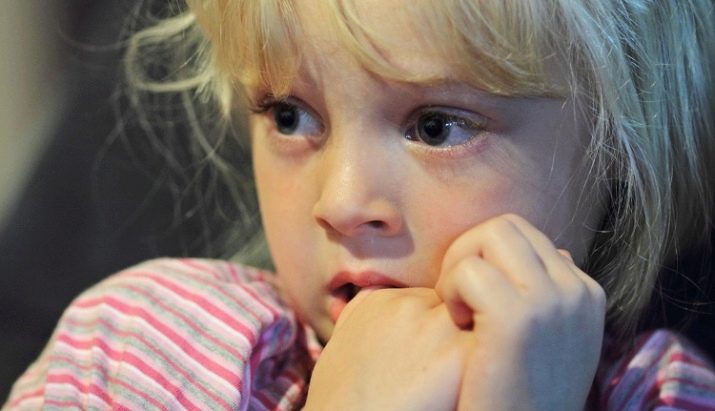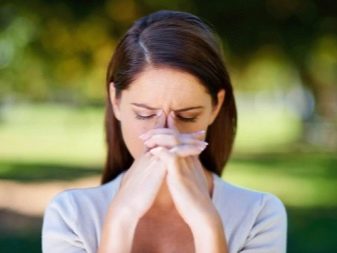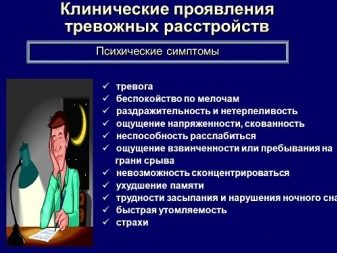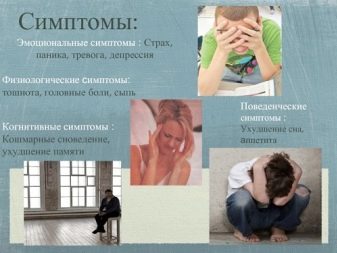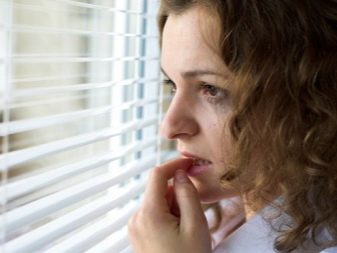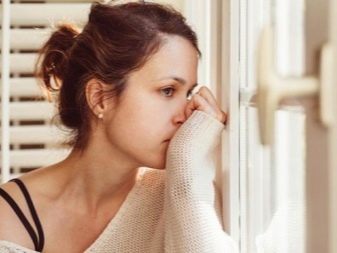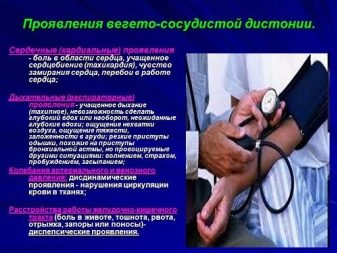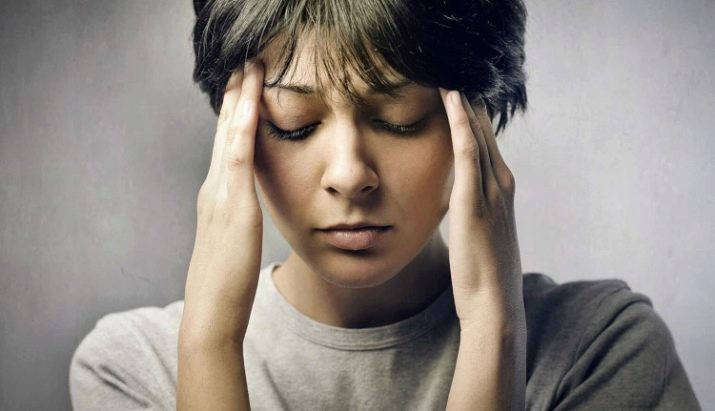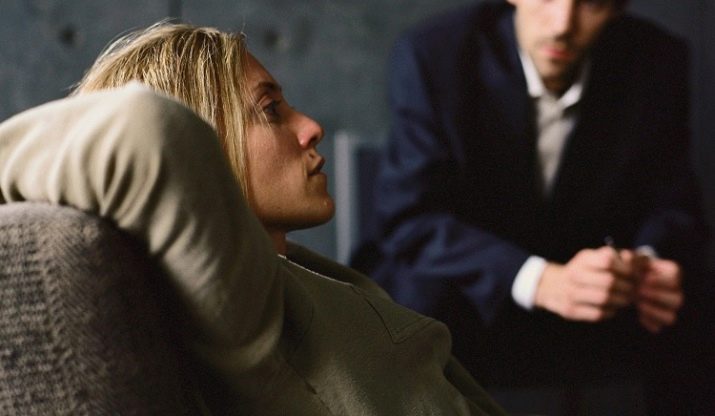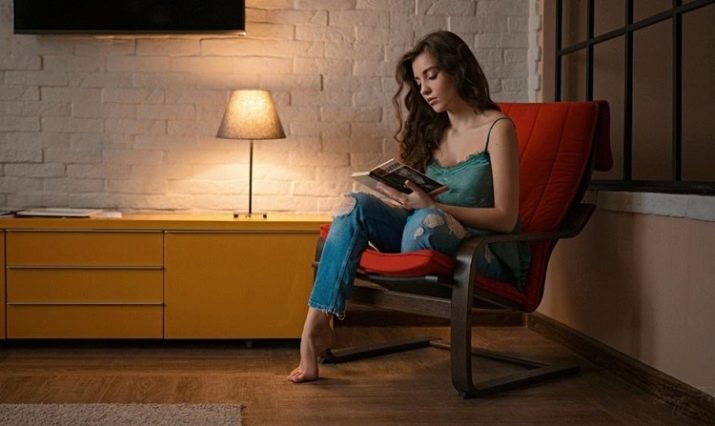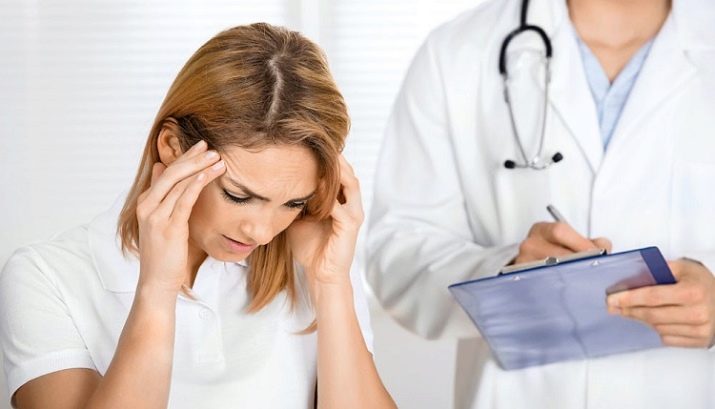Feeling of fear and anxiety without a reason: why it occurs and how to treat?
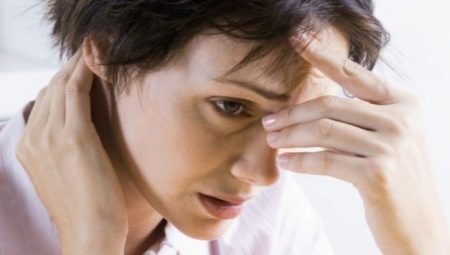
In our difficult dynamic time, anxiety often accompanies a person in many areas of his life. Why it appears, how it manifests itself and how to cope with it, we will understand in this article.
What it is?
Anxiety is familiar to almost everyone. It occurs under adverse circumstances of life. Problems at work, school, in the family, unrest in the world - these situations, which have unfortunately become the constant companions of modern man, contribute to the excitement and nervous tension. Emotional surges occur most often in women due to the fact that, by their nature, they are more sensitive than men.
Unreasonable fear and anxiety appear when there seems to be no reason for concern. Negative emotions that exhaust and bring to a daze, at first glance, have no obvious logical basis. Irrational means wrong, false. But a deeper insight allows to reveal the root causes of the problem, which is called irrational fear.
Main symptoms and their diagnosis
Feelings of excitement or anxiety in the soul may well occur in everyday life: in a new unfamiliar environment, uncertainty, anticipation. These are normal emotional reactions. A painful condition occurs when these emotions become difficult to control, psychosomatic reactions are activated and certain symptoms are observed within a few months.
Psychological symptoms:
- the fear that something can happen to loved ones;
- anxiety for them and their fate;
- irritability;
- excitability;
- blurred perception;
- desire to control everything;
- feeling of slowing down time.
Behavioral:
- distraction;
- shifting things from place to place;
- continuous manipulation of the subject;
- fussiness;
- constant hand washing;
- avoiding anyone or anything.
Vegetative-vascular symptoms:
- muscle tension;
- sweating;
- cold limbs;
- breath holding;
- gastrointestinal upset;
- weakness;
- nausea;
- ear congestion.
Attacks of anxiety can be associated with different objects and subjects:
- compulsive actions occur when a person constantly checks whether the devices are turned off, as well as the safety of other objects;
- in perfectionism, the results of activities are repeatedly checked, the patient feels that someone may suffer because of his actions;
- with various phobias, people are afraid of non-existent objects or objects that do not represent a real danger;
- with hypochondria - have a constant fear of getting sick;
- fear of crowded places occurs when agoraphobia.
In the mildest form proceeds anxious neurosis. It is often associated with hormonal imbalances and is triggered by overwork and stressful situations. At this stage, recovery is much easier.
Untreated anxious neurosis can spill over into depression. “De Pressio” in Latin - no stimulus. In this state, the patient has no desire for any activity and communication for a long time. Habitual activities are not interesting, anxiety, fatigue, and indifference are growing. Depression is caused by experiencing a series of failures, a serious illness, the loss of a loved one.
Dealing with depression is more difficult than with neurosis.
A phobia is an inexplicable intense fear that is amplified in the situation of a meeting with a certain object. Man tries in every way to avoid these objects. Phobic syndrome is better corrected at the first sign of its manifestation.
When alcohol intoxication suffers primarily nervous system. A hungoing anxiety is characterized by a sharp change of mood, dizziness, irrational fears, palpitations, and gastrointestinal upset.
Panic attack - especially strong paroxysmal manifestation of anxiety. Characterized by the above symptoms, but different suddenness and greater severity. A person is accompanied by the fear of death, madness, a sense of unreality of what is happening. There is a sharp deterioration in physical condition: nausea, chills, tremors, rapid heartbeat, jumps in blood pressure.
After the first panic attack, there is a fear of its repetition, since its very manifestation is frightening for a person.
Since this happens more often in crowded places or in confined spaces, the patient tends to avoid such situations and gradually self-isolates.
Causes
The apparent causeless anxiety has deep roots in the past. The subconscious of a person is able to keep a “record” of events of different prescription, especially if they were accompanied by intense experiences. Therefore, severe stress or prolonged emotional stress leaves its mark in the subconscious. These experiences are reproduced using the mechanism of the conditioned reflex. The appearance or memory of at least one of the factors of a long-standing event can trigger the whole chain with the corresponding symptoms.
If, for example, a person did not manage to get a job for a long time, this was accompanied by severe anxiety and depression, while he was confronted with a certain behavior of employers (discontent, heightened voice, refusal), then the similar behavior of the boss ( the work is already there, it can provoke negative emotions and fear.
Another example is the experience of an unsuccessful marriage of a woman. A certain behavioral complex of her past companion could be really frightening (when he clarified the relationship, he shouted, swung, and so on, while pacing the room). In a new relationship, this fear may arise when a new satellite has a single component of the complex, perhaps even a minor one (walking around the room during a wave). In this case, the subconscious responds to it as a danger.
Other factors contributing to the development of anxiety and uncontrolled fears.
- Genetic predisposition. Many mental abnormalities are inherited.
- Overwork, violation of sleep and rest, work at night - all this depletes the nervous system and leads to its decompensation.
- Violation of hormonal levels. The level of hormones directly affects the nervous activity. His instability causes fluctuations in mood, emotional background.
- Low level of psychological protection. As the body is protected by immunity, so our psyche has its own protective mechanisms. Heightened anxiety and fear can speak about their decrease.
- Manipulative relationships, lack of sincerity, ability to express one’s point of view, as well as a feeling of not accepting it kind of “clogs” negative emotions in a person and causes them to “roam”, which causes internal stress and may later result in panic moods.
- Substance use (cigarettes, alcohol, etc.). With their constant use, mood swings appear and anxiety increases.
- Happiness to be a woman is also a responsibility. Responsibility for your emotions.
The female psyche is more sensitive and susceptible to psychological stress, and therefore more susceptible to anxiety and unrest.
Treatment methods
Manifestations of fear and anxiety can be managed on your own
First you need to analyze situations that could be the true cause of excitement. Further, trying to turn off emotions, one should soberly judge the reality of their threat. It helps to separate from the frightening object. Switching to physical or mental work contributes to distraction, dispels the concentration of the source of excitement.
You can "play" health. Sometimes the demonstration of confidence and calm is perceived by the subconscious as a signal to calm down, contributing to the stabilization of the state.
If, after mental cleansing, the anxiety attack has not passed or there are no real causes of anxiety, you need to admit to yourself that these fears are just a fantasy, leaving the imaginary world and take a firm decision to “descend from the clouds”.
Physical methods of getting rid of anxiety are in the impact of space and environmental factors. Required remove extra irritants: turn off the Internet and TV, exclude viewing and listening to negative news, broadcasts and music.
Effectively using the following relaxation methods: breath control with leveling, slowing down and contraction of respiratory movements, douche and self-massage. Do not take medicine without finding out the cause of the problem, as this may contribute to addiction. Allow yourself to ask others for help - this will reduce the uniqueness of your experience and help you find peace and confidence.
If you are unable to cope with the problem of anxiety and irrational fears, you should seek medical help yourself. A psychotherapist will help to find out the true causes of the problem, schedule an examination, advise which tests to take. In the treatment of anxiety disorders, diabetes mellitus, tumor processes, osteochondrosis of the cervical spine are excluded, and blood biochemistry, hormones, and ECG are checked.
Panic attacks and other anxiety disorders are effectively treated with body-oriented therapy that effectively relieves stress, removes blocks and promotes awareness and elimination of the causes.
Cognitive-behavioral therapy helps to remove irrational attitudes, and hypnosis reveals the underlying causes and replaces negative attitudes with productive ones.
Drug control anxiety disorders is to take anxiolytics, antidepressants and tranquilizers.
Preventing gratuitous fears and anxiety includes regular physical activity in the form of sports, charging, breathing gymnasts. Compulsory nutrition with the availability of essential micronutrients and vitamins is mandatory.. Important also adherence to work and rest, sleep, corresponding to human biorhythms. BUT care about your information environment also important as hygiene for the body, as it can contribute to pollution or, conversely, restoration, improvement of the mental sphere.
Irrational fear and anxiety involve deep layers of the psyche. They bring a lot of trouble, but armed with knowledge and looking at them without fear, you can cope with this problem on your own, with the help of close people or by seeking help from a specialist.
